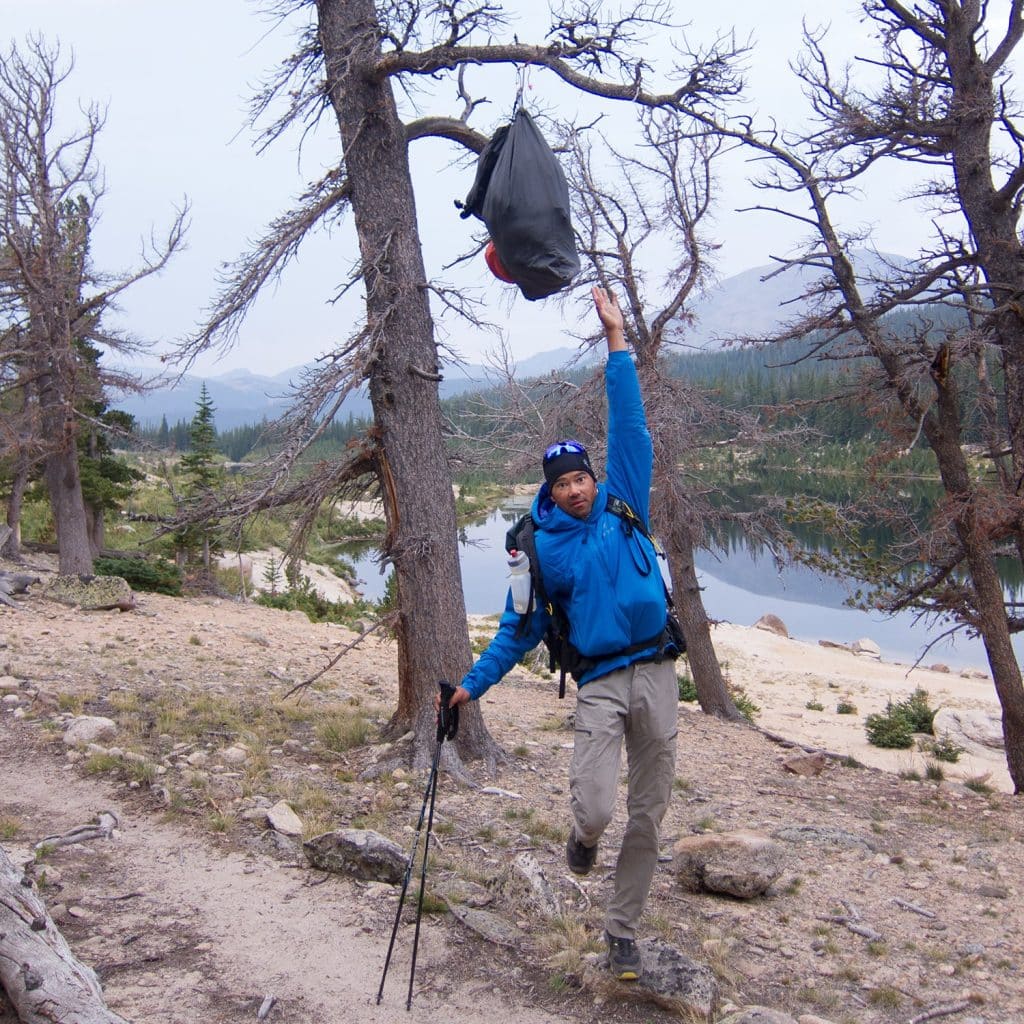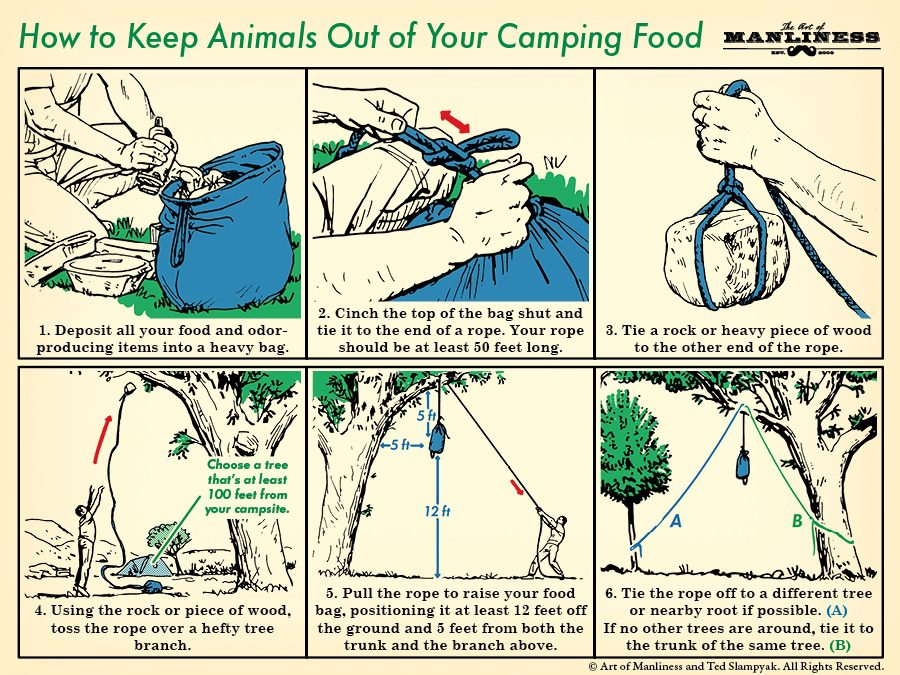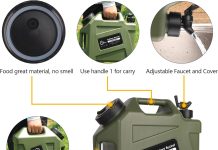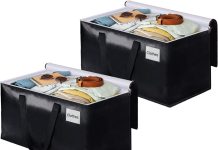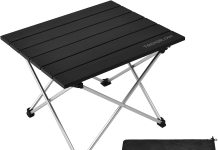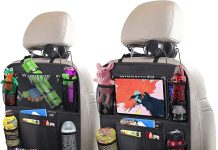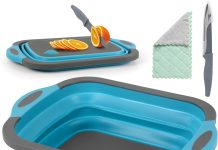When it comes to camping, one of the most frequently asked questions is whether or not we should hang our food. The allure of the great outdoors and the possibility of encountering wildlife can make this decision crucial for ensuring an enjoyable and safe trip. In this article, we will explore the reasons behind the hanging food practice, weigh the pros and cons, and provide you with practical tips to make an informed decision on whether or not you should hang your food while camping.
Review contents
The Importance of Hanging Food
Camping in the great outdoors is a thrilling experience, but it’s important to remember that we are sharing the environment with wildlife. Proper food storage is crucial to prevent wildlife encounters, protect our food, and keep the campsite clean. By hanging our food, we can minimize the chances of attracting animals to our campsite and ensure a safe and enjoyable camping experience for everyone.
Preventing Wildlife Encounters
One of the main reasons for hanging our food is to prevent wildlife encounters. When animals smell the scent of food, they are naturally tempted to investigate and might become a nuisance or, in some cases, pose a danger to campers. By properly hanging our food, we can decrease the likelihood of attracting wildlife to our immediate vicinity.
Protecting Your Food
Hanging our food is essential for preventing hungry critters from snatching away our meals. Squirrels, raccoons, and bears are notorious for rummaging through campsites in search of an easy meal. By elevating our food supply, we can keep it out of reach and deter animals from ransacking our provisions. Protecting our food not only ensures that we have enough to sustain us during our camping trip but also avoids potentially dangerous situations that may arise from confrontations with wildlife.
Keeping the Campsite Clean
Maintaining a clean campsite is not only courteous to fellow campers but also vital for the well-being of the local ecosystem. Leaving food unattended or improperly stored can attract unwanted scavengers, disrupt the natural balance, and potentially harm wildlife. By hanging our food, we minimize the chances of creating a mess that could harm the environment and negatively impact the overall camping experience.
Factors to Consider
When deciding whether to hang our food or not, there are several factors to take into consideration. These factors include the location of our campsite, the presence of wildlife in the area, campsite regulations, and weather conditions.
Location
The location of our campsite plays a significant role in determining whether we should hang our food. If we are camping in an area known for high wildlife activity or near a bear habitat, hanging our food becomes even more critical. Understanding the specific characteristics of the location can help us make an informed decision and take appropriate measures to ensure our safety and the protection of wildlife.
Wildlife Activity
Knowing the level of wildlife activity in the area is crucial when deciding to hang our food or not. Researching the local wildlife population and their habits can give us valuable insight into how likely our campsite is to attract animals. If there have been recent reports of wildlife encounters or if campers in the area have observed increased wildlife activity, it is advisable to err on the side of caution and hang our food.
Campsite Regulations
Different campsites have different regulations regarding food storage. Some campsites may require campers to hang their food, while others may provide bear-resistant containers or recommend storing food in locked vehicles. It is essential to familiarize ourselves with the specific regulations of our chosen campsite and follow them accordingly to ensure compliance and minimize the risk of wildlife encounters.
Weather Conditions
Weather conditions can also influence our decision to hang our food. In areas with heavy rainfall or strong winds, hanging food might be challenging or ineffective. Severe weather can affect the stability of the hanging system and increase the chances of attracting wildlife. It is essential to assess the weather forecast and adjust our food storage method accordingly, such as opting for bear-resistant containers or storing food in a locked vehicle if hanging becomes impractical due to weather conditions.
This image is property of www.nps.gov.
How to Hang Your Food
Choosing the Right Tree
When hanging our food, selecting the right tree is crucial. Look for trees that are strong, sturdy, and tall enough so that the food bag is at least 10 feet off the ground and 4 feet away from any nearby branches. Avoid trees that are dead, rotting, or likely to have branches that animals can climb to reach our food. Opt for trees with smooth bark, as it makes it difficult for animals to climb.
Preparing the Rope
Before we can hang our food, we need to prepare the rope. Tie a small rock or stick to one end of the rope to make it easier to throw over a branch. Ensure that the rope is long enough to reach the desired height and distance between the food bag and the ground.
Securing the Food Bag
Place all our food, garbage, and anything with a strong scent inside a durable, odor-proof bag. This will help deter wildlife from being attracted to the smell of our food. Once the bag is securely closed, tie it tightly to the other end of the rope. Make sure the bag is tied securely to prevent it from coming loose or falling.
Lifting and Hanging the Food
Stand a safe distance away from the tree and throw the rock or stick end of the rope over a sturdy branch. Slowly and steadily pull on the other end of the rope, making sure the bag lifts off the ground and is suspended at least 10 feet high and 4 feet away from the tree trunk.
Maintaining Distance from Campsite
After successfully hanging our food, it is crucial to maintain a distance between the hanging location and our campsite. This helps minimize the chances of attracting wildlife to our immediate vicinity and reduces the risk of them inadvertently damaging our camping equipment.
Alternatives to Hanging Food
While hanging food is a widely practiced method, there are alternatives to consider depending on the circumstances.
Using Bear-Resistant Containers
Bear-resistant containers are specially designed containers that are difficult for bears and other animals to open. These containers are made of durable materials, often with a locking mechanism that requires opposable thumbs to open. If the campsite provides bear-resistant containers or if we have access to them, using them can provide an effective alternative to hanging food.
Storing Food in a Locked Vehicle
If hanging or bear-resistant containers are not available, storing food in a locked vehicle can be a viable option. Ensure that the vehicle is secure and that windows and doors are properly closed and locked. It is crucial to take extra precautions to prevent any lingering food smells from emanating from the vehicle, as these can still attract wildlife.
This image is property of cdn.outsideonline.com.
Pros and Cons of Hanging Food
Like any food storage method, hanging food has its pros and cons.
Pros of Hanging Food
Hanging food is a tried and tested method that has been effective in preventing wildlife encounters and protecting our food for many campers. It is a low-cost solution that requires minimal equipment and can be easily implemented. Hanging food also allows us to keep our campsite clean and minimize our impact on the environment.
Cons of Hanging Food
Hanging food requires proper preparation, skill, and knowledge. It can be challenging to find suitable trees and ensure the food bag is securely tied. Hanging food may also be prohibited in some areas due to regulations or lack of suitable trees. Additionally, hanging food can be time-consuming, especially in adverse weather conditions or when camping with a large group.
Tips for Successful Food Hanging
To ensure a successful food hanging experience, here are some helpful tips to consider:
Research Local Guidelines
Before embarking on our camping trip, thoroughly research the local guidelines and regulations regarding food storage. Familiarize ourselves with any specific requirements or recommendations to ensure compliance and promote a safe camping experience.
Choose a Suitable Hanging Method
Consider the specific circumstances of our camping trip, such as location, wildlife activity, and weather conditions, when deciding on the most suitable food hanging method. Adapt the method based on the availability of suitable trees, equipment, and other resources.
Store Food in Odor-Proof Bags
Use odor-proof bags to store all our food, garbage, and anything with a strong scent. This helps minimize the chances of wildlife being attracted to the smell and reduces the risk of encounters near our campsite.
Keep Cooking and Sleeping Areas Separate
To further minimize the risk of attracting wildlife to our campsite, keep the cooking and sleeping areas separate. Preparing and consuming food away from our sleeping area helps ensure that food smells do not linger near where we rest, reducing the chances of wildlife encounters during the night.
This image is property of www.princeton.edu.
Common Mistakes to Avoid
When hanging our food, it is important to avoid common mistakes that can compromise its effectiveness.
Hanging Food Too Low
One common mistake is hanging food too low, within easy reach of animals. Ensure the food bag is suspended at least 10 feet off the ground and 4 feet away from any branches or the tree trunk. Hanging food too low can render the entire process ineffective and put our food at risk of being accessed by wildlife.
Not Securing the Food Bag Properly
Properly securing the food bag is essential to prevent it from coming loose or falling. Double-check the knots and ties to ensure they are tight and secure. Failing to secure the food bag properly not only compromises our food’s safety but also increases the risk of wildlife encounters.
Failing to Clean Up Food Smells
Leaving behind lingering food smells can attract wildlife to our campsite, even if the food is properly hung. It is crucial to clean up any food spills, properly dispose of food waste, and ensure the campsite is clean and odor-free to minimize the risk of wildlife encounters.
Additional Food Safety Measures
In addition to hanging our food, there are other food safety measures we should keep in mind while camping.
Properly Store Food Containers
Proper storage of food containers is important to prevent spills, leaks, or odors that might attract wildlife. Ensure all food containers are well sealed, organized, and stored securely, away from the immediate vicinity of the campsite.
Dispose of Food Waste Correctly
Dispose of food waste properly by following the designated guidelines for the campsite. Use any provided waste bins or receptacles and avoid leaving food waste out in the open or burying it, as this can still attract wildlife and disrupt the ecosystem.
Follow Hygiene Practices
Maintaining good hygiene practices while camping is essential for preventing foodborne illnesses. Wash hands thoroughly before handling food, use clean utensils and equipment, and store food at appropriate temperatures to ensure its safety and prevent contamination.
This image is property of andrewskurka.com.
Conclusion
Hanging our food while camping is an important aspect of food safety and wildlife management. By properly hanging our food, we can prevent wildlife encounters, protect our food from being snatched away by curious critters, and keep our campsite clean and free from unwanted visitors. However, it is crucial to evaluate individual situations, considering factors such as location, wildlife activity, campsite regulations, and weather conditions, to determine the most suitable food storage method. Follow local guidelines, use suitable hanging methods, and maintain proper hygiene practices to ensure a successful and enjoyable camping experience while minimizing our impact on the environment.
Resources
For more information on campsite regulations, guidelines for hanging food, and bear-resistant containers, refer to the following resources:
- Local Campsite Regulations: Contact the specific campsite or park authorities for up-to-date regulations and guidelines regarding food storage.
- Guidelines for Hanging Food: Check websites or guidebooks on camping and outdoor activities that provide detailed instructions on how to hang food properly.
- Bear-Resistant Containers: Look for manufacturers or suppliers that offer bear-resistant containers suitable for outdoor food storage.
This image is property of content.artofmanliness.com.



